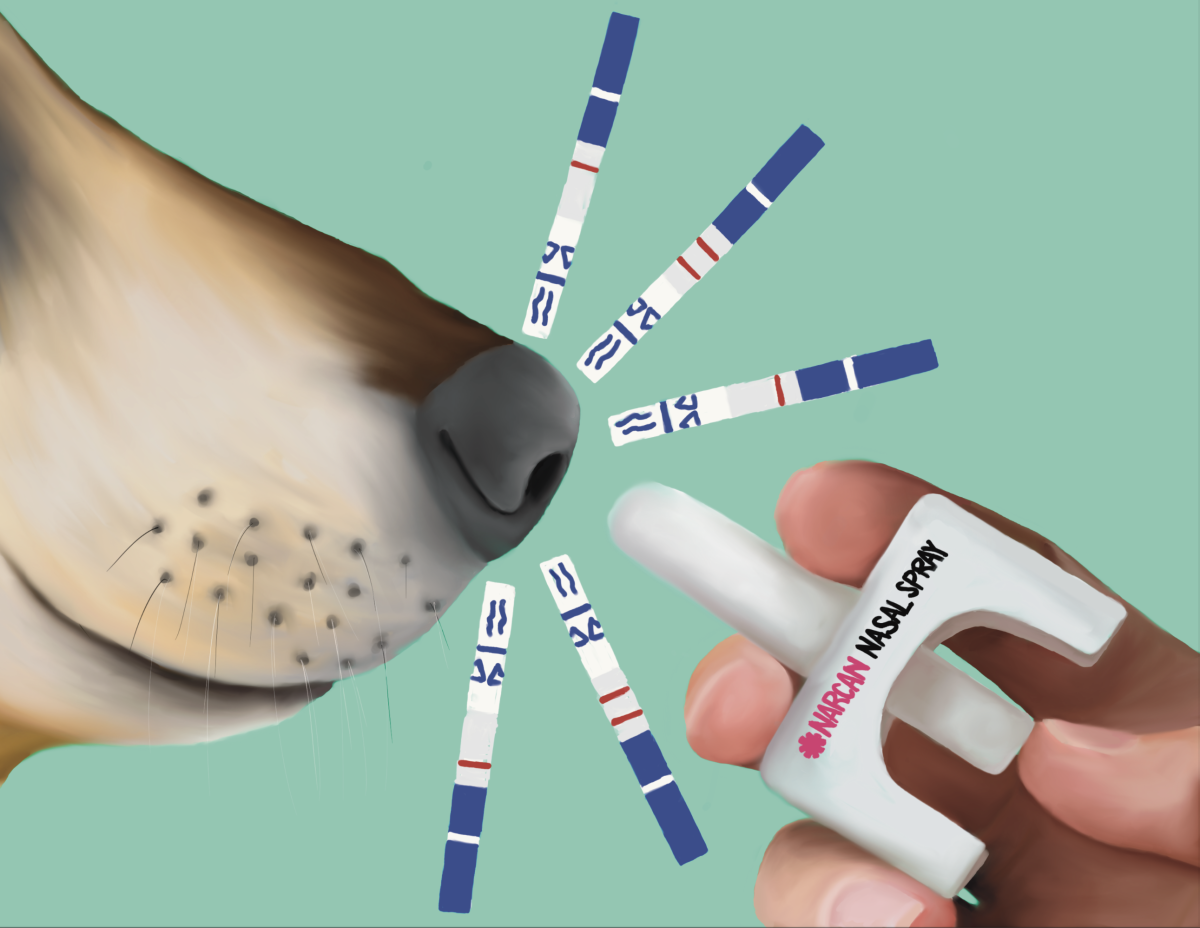Editor’s Note: This article contains reference to drug overdose.
More than 4,000 people died of drug overdose in North Carolina in 2021, reports the North Carolina Department of Health and Human Services (NCDHHS), the highest number of overdose deaths recorded in a single year in state history. The CDC’s State Unintentional Drug Overdose Reporting System dashboard indicates that of the total drug overdose deaths in the state in 2021, 69.3% had at least one potential opportunity for intervention.
NC State Prevention Services works to prevent overdoses and limit risks associated with substance use by providing resources and education to the NC State community. Students, staff and faculty can register for regular Opioid Overdose Prevention and Education Workshops with a Unity ID login on Reporter.
Jeffrey Fay, an alcohol and other drug prevention coordinator at Prevention Services, said these trainings equip participants to prevent, identify and respond to an opioid overdose.
“Our main goal is to just educate students, no matter what the substance is, that there’s inherent risk associated with it,” Fay said. “So even if we go to the dollar store and buy Tylenol, there’s an inherent risk of taking the medication. We want students — if it’s an opioid, if it’s cannabis, if it’s alcohol — to be aware, if you’re going to use the substances, what are some of the warning signs if you overconsume.”
Fay said Prevention Services began distributing free naloxone, a medication designed to rapidly reverse the effects of an opioid overdose, in summer 2022, and they handed out over 175 naloxone kits in the fall semester.
Loftin Wilson, the harm reduction programs manager at the North Carolina Harm Reduction Coalition, said anyone can carry naloxone.
“It’s something that it never hurts for everybody to have, kind of in the same way that most buildings have fire extinguishers, and a lot of buildings have AEDs,” Wilson said. “We’re not planning for people to have heart attacks, we’re not planning for fires, it’s just a good thing to be prepared for.”
The NCDHHS reports that in 2021, 77% of overdose deaths in North Carolina likely involved fentanyl, an opioid that is similar to morphine and approximately 100 times more potent. Due to its low cost and higher potency, drug suppliers may mix fentanyl with other drugs, such as heroin and oxycodone.
“It’s not that students seek out heroin or morphine or any other opioids,” Fay said. “The concern nationally is the amount of contaminated products, so if me and you are interested in another drug, we might be getting fentanyl or an opioid.”
In addition to naloxone, Prevention Services also offers free fentanyl test strips to test for the presence of fentanyl in unregulated drugs. Fay said it is not illegal to possess naloxone or fentanyl test strips in North Carolina.
Fay said Prevention Services also works with the College of Veterinary Medicine to highlight the risks associated with purchasing medication for a pet online.
“A lot of people give medications to their animals,” Fay said. “So if you’re buying medication that’s not monitored or regulated, we want people to be aware that it could be tainted.”
Currently, Fay said Prevention Services relies on grant funding and donations to cover the cost of naloxone and fentanyl test strip kits, which means they have a limited supply of naloxone kits. However, naloxone is covered by most insurance policies and available to purchase without a prescription at the majority of pharmacies in the state. To find the nearest pharmacy that dispenses naloxone, visit naloxonesaves.org.
Wilson said providing strategies to reduce the risks associated with drug use is an important part of harm reduction and can save lives.
“It’s something that we use a lot in other parts of our lives without thinking about it,” Wilson said. “Every time we use a seatbelt when we drive, that’s harm reduction. Driving is dangerous — we’re likely to hurt ourselves or hurt somebody else when we drive. But we don’t say nobody can ever drive and nobody can ever build cars; we have seatbelts, we have airbags, we have speed limits, we have all of these sort of interventions that we’ve developed over time that help reduce the risk of what’s inherently a risky activity because we recognize that it has benefits for people.”
Wilson said students can get involved in volunteering opportunities at the North Carolina Harm Reduction Coalition to help promote harm reduction. To learn more, visit their website.













